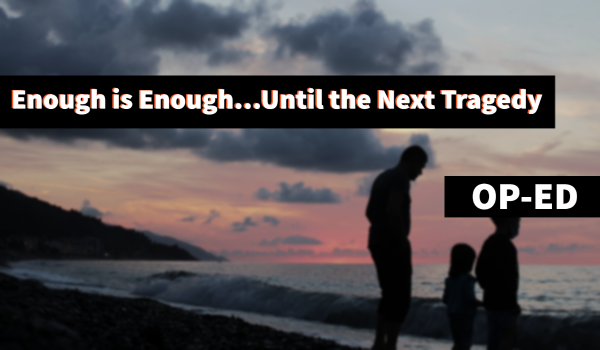By Spyros-Vlad Oikonomou, Advocacy & Communications Officer at ECRE member the Greek Council for Refugees (GCR)
In the morning hours of Wednesday, 14 June 2023, a boat carrying refugees and migrants sank off the coast of Pylos, in Southwestern Greece. Up to the time of writing, 104 people have been rescued and the bodies of close to 80 have been retrieved. The unseaworthy vessel is estimated to have been carrying anywhere between 400 and more than 700 people, including 50-100 children whose bodies have not been found.
“Enough!” may be a word standing on many people’s minds and hearts, after yet again witnessing Europe’s Mediterranean shores becoming a watery grave for people on the move. As for the reasons for their choosing to “move”? Be they due to fear of persecution, fleeing violence or wars, or in pursuit of dreams for a better life, these are all irrelevant today, unless discussed – genuinely discussed – to foster an honest dialogue and reflection on the full set of reasons driving people to such journeys.
These days should be days, yes, of mourning, as the interim Greek government decided following the devastating shipwreck. They also need to be days of questions and answers as to the full set of circumstances that led to the confirmed death of 78 lives and the potential loss of hundreds more. But they also need to lead to deep reflection on how the issue of migration has been and is being managed and discussed for the past years in the EU.
We consistently hear EU representatives and representatives of member states being “shocked”, “deeply saddened” and “affected” following such tragedies. One can recount here widespread reactions after the death of 3-year-old Aylan Kurdi back in 2015, the burning of the Moria camp in Lesvos back in 2020, and the Melilla incident in 2022, and one can already see similar “shocks” following this latest tragedy.
And then what?
Then, a few days, weeks or months pass; the “shocking” incidents become footnotes in a history of tragedies that through the years takes ever more concerning proportions, and what remains –until the next tragedy hits us “by surprise”– are the increasingly hardline policies towards migration. Policies which consistently work towards outsourcing the EU’s responsibility to protect refugees to third countries –and to that end countries which are frequently characterised by a track record of human rights abuses– to diminish protection standards and ultimately the chances refugees have to actually obtain protection in the EU as per their rights, and the dreaded smugglers. This “plague of humanity” needs to be combated at all costs, since, if one takes into consideration only the narratives promoted by many of Europe’s decision-makers, then one would feel obliged to consider that if smugglers were to disappear –and none will disagree with the necessity to combat such criminal networks– then deaths in the Mediterranean would become a tragic memory of the past.
It is like trying to address road accidents by aiming to crack down on human mobility and companies that may be failing to conform with legal or safety standards (and worse), yet without ensuring that there are available and safe roads in place for travellers, while blatantly overlooking why they need to travel in the first place. It also amounts to a complete disregard of people’s agency – whether “We” like it or not, “They” do choose to embark on such vessels, with logic dictating that this is at least to an extent due to the lack of alternatives. An agency which is stripped, as they are turned into voiceless victims in Europe’s “war on smuggling”. Recent history should have taught us the results that other similar oversimplifications in addressing multilayered complex matters have led to, though I recognize that parallelism may be somewhat ill-suited.
In any case, as already noted by UNHCR’s office in Greece, there is a need for safe legal pathways for those forced to take journeys such as the one that led to Wednesday’s tragedy. This need is imperative, long due and needs to be accompanied by concrete, measurable actions, alongside a broader policy shift that works towards balancing security considerations, with fundamental rights and principles and particularly the absolute right to life and to asylum. Being “shocked”, without holistically discussing and addressing the root causes of such tragedies is not sufficient. In such a case, at least let it be said that this is what the EU aspires to as its “new normal” so that we can at least have an honest discussion on a grounded basis.
Op-ed: ECRE publishes op-eds by commentators with relevant experience and expertise in the field who want to contribute to the debate on refugee rights in Europe. The views expressed are those of the author and does not necessarily reflect ECRE positions.

